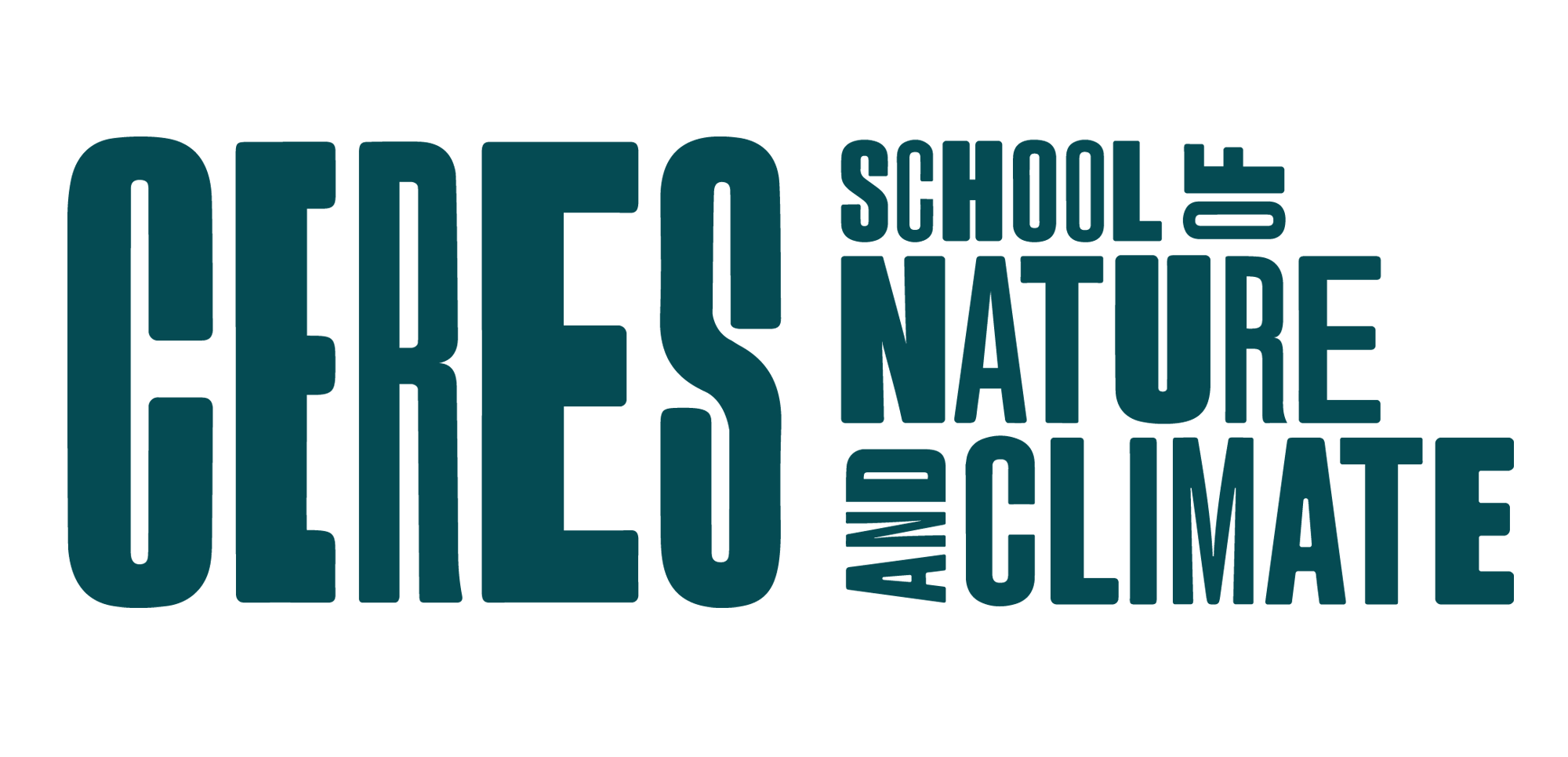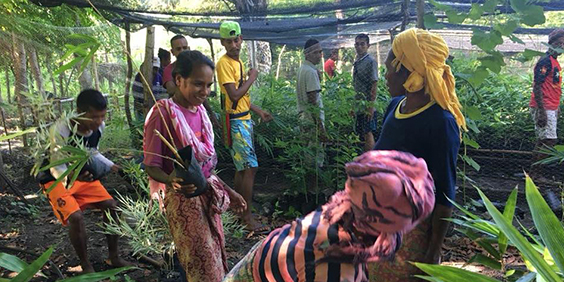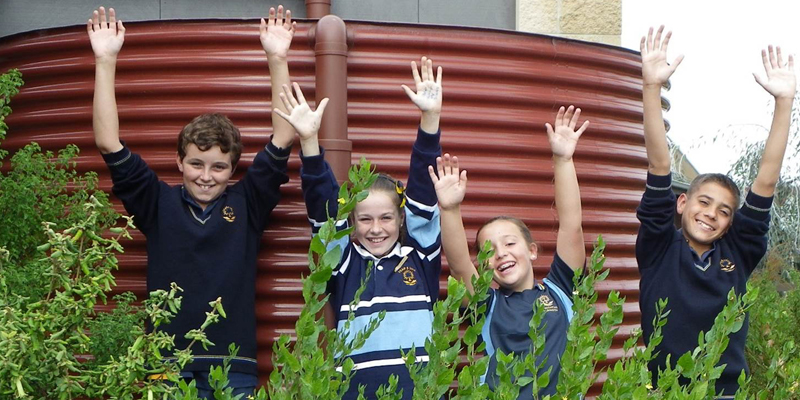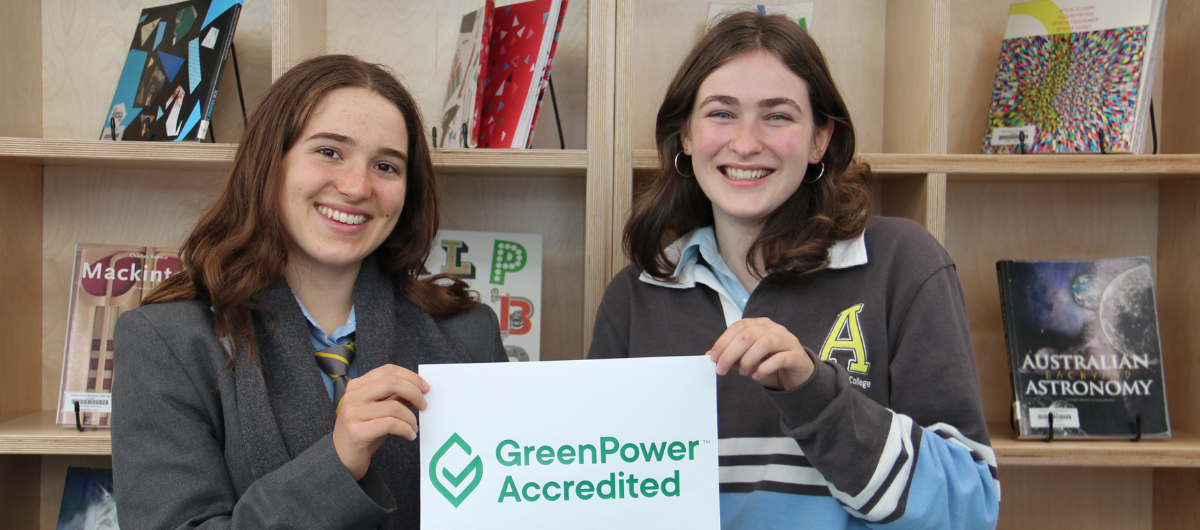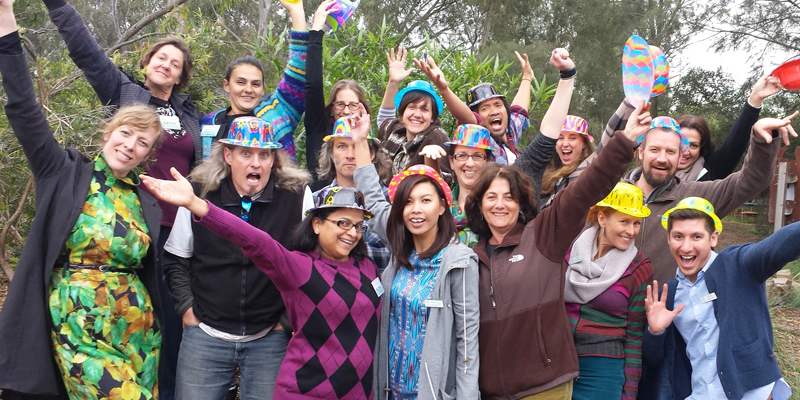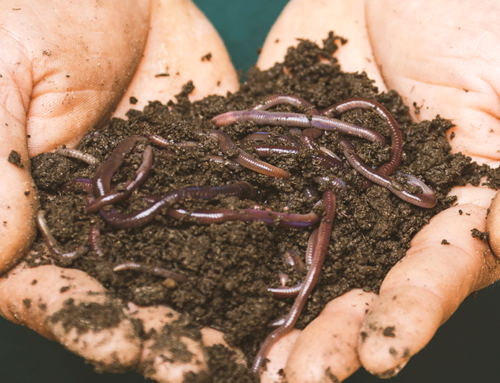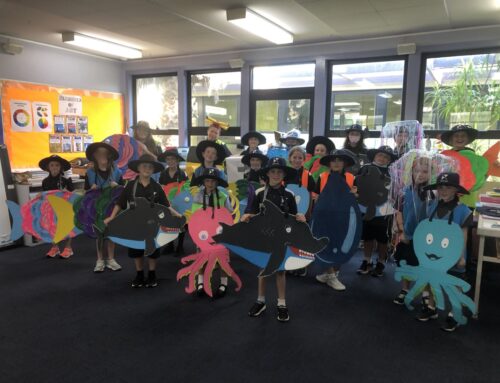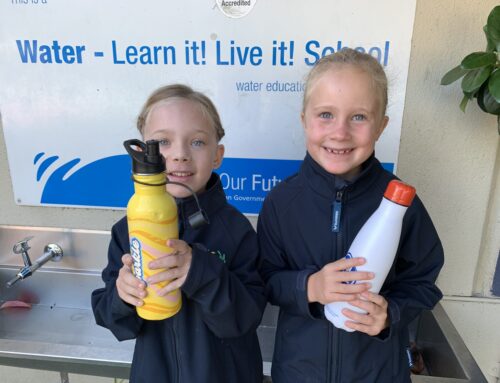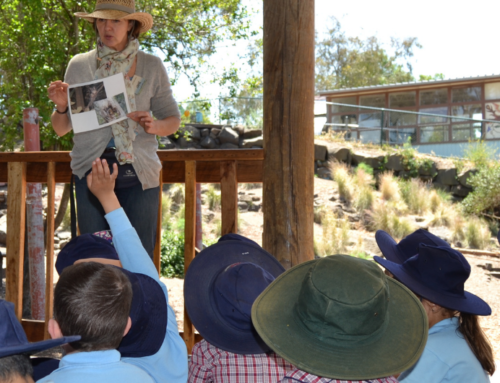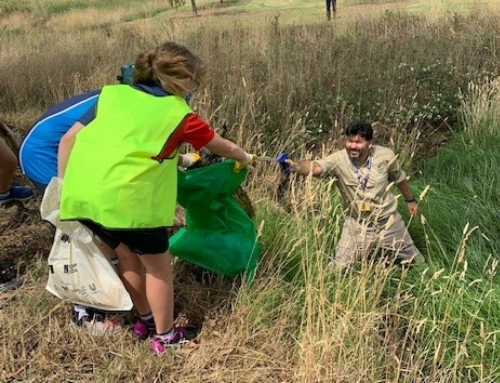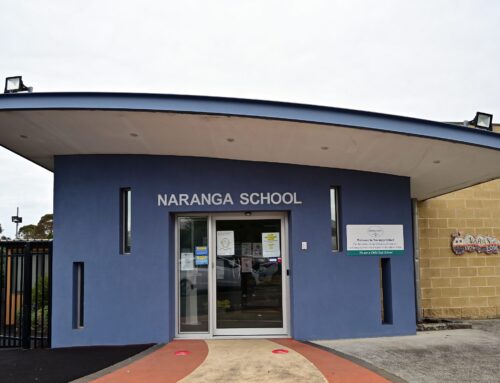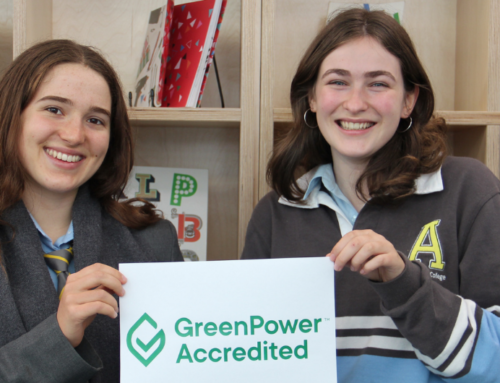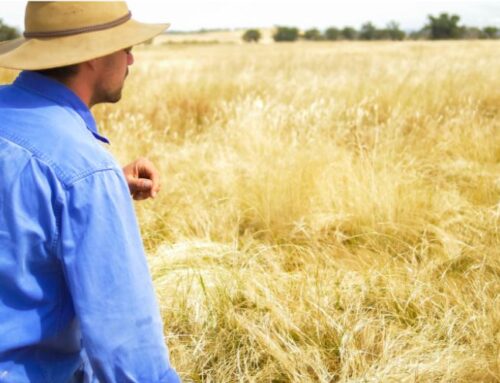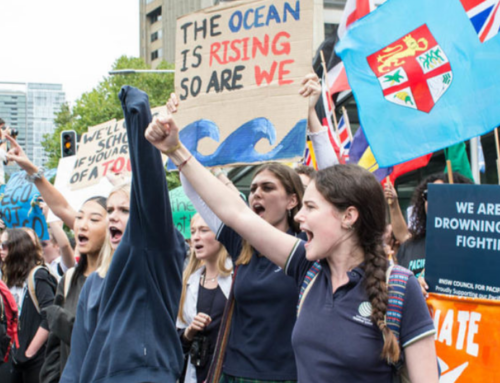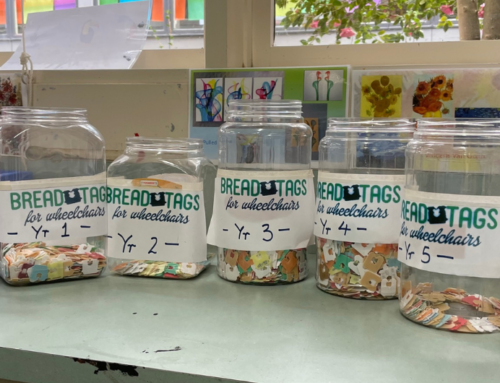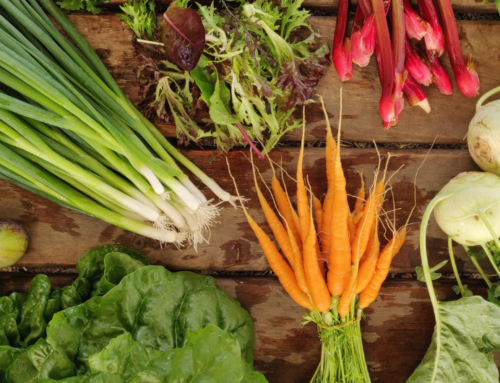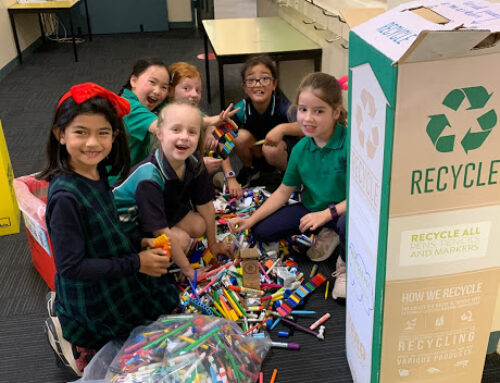What Inspires Me – Guy Gurney
June 2021
In this edition of ‘What Inspires Me’ we feature Guy Gurney, the passionate Sustainability Coordinator at Eltham Primary School. Guy inspires not only his students, but is also an ‘action influencer’ outside of the school gates amongst his family and friends, particularly in spreading the word about the importance of waste reduction.
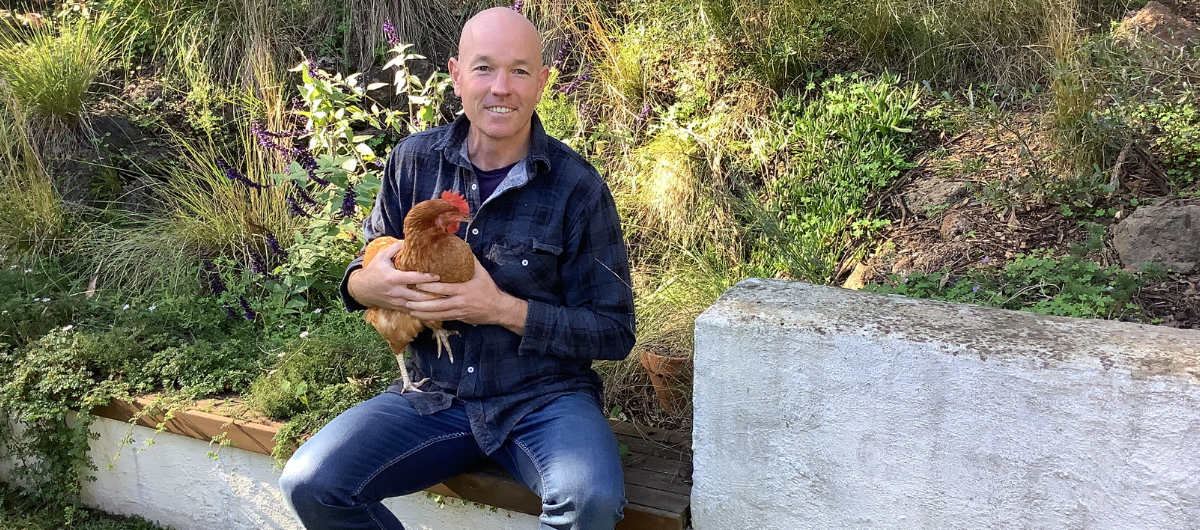
1. How did you first get started with environmental education?
I grew up in the Bend of Islands in Christmas Hills, a bush area within the broad Nillumbik Shire 40kms from Melbourne. This area was, at the time, the only residential environmental living zone in the world, with its own unique by-laws directing residents that chose to live there to live with sustainable practices – simple measures like planting indigenous plants, no cats or dogs to preserve the wildlife, utilising rain water where possible etc. My dad was heavily involved in Landcare and so I had a number of influences in relation to environmental knowledge and thoughts.
I studied Parks, Recreation and Heritage at Charles Sturt University and majored in vegetation management. The aim was to become a park ranger. However, a university field trip to the Kosciusko region shifted my mind; a ranger showed us a new interpretive program designed for children and yet he was so boring! I thought “how is any child going to be inspired to have an environmental conscience if this is how the program is delivered?” So I decided to study teaching so I could enhance my ability to deliver environmental messaging with joy, light and sincerity.
2. What have been the biggest highlights of your journey so far?
I’m very proud to be the sustainability coordinator at Eltham Primary School – to have endorsement by a school principal who sees the conversation, and subsequent positive actions, of sustainability as important from a local and global perspective is wonderful. Our involvement in the ResourceSmart Schools program (since mid-2019) is testament to this, and to my vision that within schools we can influence life habits of our students and their families. I am thrilled with the gains we have made with our classroom waste management and look forward to broadening this to our school yard during semester two. The children want change, they also want guidance as it can be overwhelming for them initially.
I’ve organised many Clean-up Australia Day events at a number of schools I’ve worked at, including for students with physical disabilities. Being in action, and being told why it is important, is a thrill for most kids; if they know that by picking up rubbish near a creek will stop a platypus’ habitat being ruined, they’ll work hard. It has to mean something.
I was employed at my very first school (Numurkah PS) with the additional role of being the Junior Landcare coordinator – we did some tree planting for National Tree Day in 1999 and those trees are strong and visible at that school today.
Even when I lived, and travelled, overseas in the early 2000’s I found ways to contribute to sustainable projects including volunteering for a British Conversation Trust for Volunteers project where I spent a week, with other volunteers, creating a wetland at a summer camp venue.
I enjoy developing my own native garden at my home using (mostly) local indigenous plants, and utilising self-sown plants where possible.
3. How do you engage with people that are not buying into the sustainability message?
I leave the ‘big messaging’ to the media and to influential people; I am more of an ‘action influencer’ and focus on the small habits people can incorporate easily into daily life. For example, I have played country or suburban AFL footy my whole adult life. My current club is a Superrules club and has players aged between 35-65. They are wonderful blokes yet they have genuinely believed that it’s not worth doing anything meaningfully sustainable as the ‘world is already stuffed’, yet at the same time, they want a safe world for their children, and in some cases grandchildren. Basically, they are conflicted; they are not sure that anything they do will be meaningful. However, I have used footy terminology to describe the influence of any of their actions: recycling soft plastics is like a short kick out of the backline, using public transport where possible is like a strong contested mark on the wing, involving children/grandchildren in a tree planting activity is like a long kick to full forward and buying Australian made products is like a straight kick towards….GOAL! They can see that many small actions on the footy ground can lead to a goal just as many small actions of sustainable living can score a goal for the planet, and the influence on their family network. Plus, I support my ten year old daughter to collect aluminium cans for pocket money by taking a can bin to training each week for the beer/soft drink cans; the lads from the club now save their cans for my daughter as they know it is her way of helping to reduce landfill, as well as making a few dollars.
At the school I teach at we have shifted our school waste management significantly by 1) implementing user friendly and meaningful waste management options across the school and 2) by me being actively engaged in the physical work (i.e. helping students collect the soft plastic recycling and taking it to Coles). Kids don’t want adults to ‘tell’ them what to do without seeing them do it as well. And, they like to know what the difference is they’re contributing to by the choices they make so explaining the impact of sustainable choices, such as reducing food waste in landfill reduces the release of bad gases, makes their efforts meaningful.
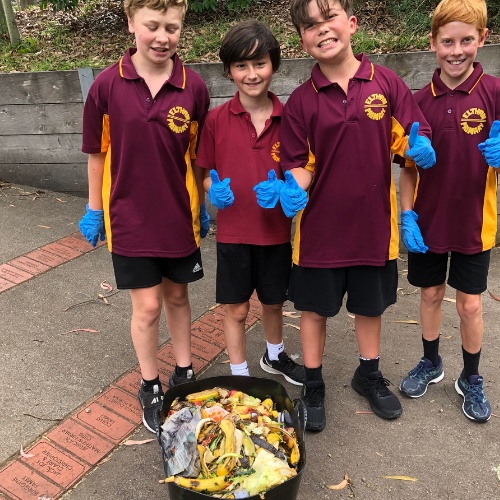
Eltham Primary School’s Grade 6 student Sustainability Leaders
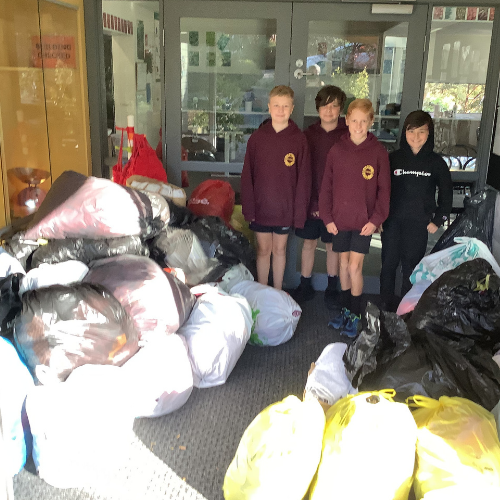
Sustainability Leaders with bags of clothes collected from the school community for their Clothes Upcycling campaign which was run through SCR group earlier this term
4. How did you continue to teach about sustainability during the remote learning period?
This was difficult and to be fair, we didn’t really. There was so much for families to manage with general school work and mental health that we didn’t push sustainable education. And, we weren’t down the track enough with our program to do this effectively anyway. However, we did take advantage of the remote learning time by getting important work done for our modules, namely establishing our school community sustainability team, generating our school Environmental Management Plan and vision statement, and planning our waste management roll-out in readiness for 2021. That behind the scenes work has set us up strongly for what is occurring at our school right now.
5. Can you share a school sustainability project or story that you’ve heard about that stood out for you?
I’m aware that there are SO many wonderful school sustainable projects happening globally – I acknowledge what it takes for a school staff to plan, implement and manage these projects, especially ones that exist perpetually. I took eight students to Edendale Farms ‘Kids Teaching Kids’ conference in 2019 – this is a magnificent forum for kids to be together and share many ways of being sustainable at school, and vicariously at home. I was captured by Montmorency South Primary School’s playground seat made of ‘bricks’ made up of two-litre plastic milk bottles filled to the brim with soft plastics by the students – the bottle and plastics were upcycled to make these ‘bricks’ which were laid in shape and then rendered to create a lovely, usable bench.
At our school we are seeking to have our classroom general waste bins not lined with a plastic bag by the end of 2021; we can achieve this if the students and staff continue to use the other waste receptacles (compost, mixed recycling, soft plastics) properly. By doing so, very little should need to go into the general waste bin and indeed, nothing messy should need to go in them so the need for a plastic bag will be void. Although our cleaner does not change the plastic bag every day for each bin, we still use a lot of plastic bags so this should save around 40-50 black plastic bags going to landfill each week. Although I have a responsibility to guide much of our action at Eltham PS, it is driven by our four Grade 6 Sustainability Leaders and our eighteen member student Sustainability Team. These students have a genuine interest in hands-on, real-time sustainable action and are vigorous participants in all of our sustainable management work.
6. What is your favourite environmental education resource for schools?
There are many resources and I don’t have a particular favourite.
The Sustainability in Schools website is wonderful, CERES School of Nature and Climate website is just a marvellous ‘real-time’ resource for community members to visit along with the other digital resources they provide to schools within the ResourceSmart Schools program, visits to Healesville Sanctuary are so beneficial – sustainable learning is so broad so the diversity of physical and digital resources is so important. Real books, that kids can open and refer to, are vital resources too and schools have a role to play to have such books available for curious kids to flip through.
7. If you could be a sustainability superhero, what name would you choose and what powers would you have to make the world more sustainable into the future?
My favourite Australian animal is the wedge-tailed eagle, what a beautiful creature. They are known for their amazing vision, and perhaps if we take some liberty with this question, they also show foresight. My sustainability superpower would then be foresight and vision; being able to be aware of what is needed for our sustainable future and having the ability to generate a plausible, valid and manageable vision for the implementation of those sustainable practices. Specifically, I’d like to use these super powers at low level areas like sporting clubs, kindergartens, small towns etc., places where the general population can sometimes feel overwhelmed by what is possible to the point that nothing effective is done. My super powers would give them guidance, and the capacity to see how small actions can make a larger difference. The global stuff is daunting to many people, and the big ticket sustainable areas are the responsibility of government and big business; local people want to undertake local action knowing that this will have broader scale impact.
So perhaps my sustainable super hero name could be ‘Percepta’ – a derivative of perception which encompasses foresight and vision.
Thank you Guy for sharing your story!
Learn more about Eltham Primary School by visiting the Eltham Primary School website.

